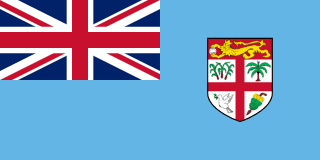Discover a comprehensive guide on the maritime aspects of the Fiji Islands, a strategic archipelago in the South Pacific. This guide details navigation conditions, major ports, commercial shipping routes, fishing, and maritime security, providing sailors and traders with essential information for a successful maritime experience around these tropical islands. Fiji represents an important maritime hub with rich marine biodiversity and developing port infrastructure.

Explore the strategic ports and maritime infrastructure of fiji

Essential maritime information about Lautoka Port port for sea professionals

Essential maritime information about Savu Savu Port port for sea professionals

Essential maritime information about Lambasa Port port for sea professionals

Essential maritime information about Levuka Port port for sea professionals

Essential maritime information about Suva Port port for sea professionals

Essential maritime information about Lautoka Port port for sea professionals

Essential maritime information about Lambasa Port port for sea professionals
Explore the strategic ports and maritime infrastructure of fiji
Fiji is an archipelago made up of more than 300 islands located in the South Pacific, between New Caledonia and Tonga. They cover a vast maritime area offering a diverse marine environment. The geography of Fiji is characterized by coral reefs, deep lagoons, and narrow passages between the islands, requiring careful navigation. Weather conditions are generally tropical, with a cyclone season from November to April that can disrupt navigation. Mariners must pay attention to local nautical charts and weather updates to ensure a safe crossing. Marine currents are influenced by the prevailing southeast winds, which can affect ships' trajectories.
Fiji also benefits from a strategic position on regional shipping routes, facilitating transit between Asia-Pacific and America. The surrounding sea teems with biological wealth, making fishing a very important economic activity while requiring sustainable management to preserve marine ecosystems.
The main port of Fiji is located in Lautoka on the main island of Viti Levu, serving as a hub for commercial maritime trade. It is followed by the port of Suva, the capital, which is also an administrative and maritime services center. These ports are equipped to handle various cargos such as agricultural products, manufactured goods, and construction materials. Port infrastructure is modernized to support the growth of maritime activities and promote international trade.
Fiji also has numerous small ports and anchorages used for artisanal fishing, inter-island transport, as well as maritime tourism. Maritime security is strengthened by the presence of the Fijian coast guard, which monitors against illegal activities such as illegal fishing, maritime trafficking, and pollution. Maritime regulations comply with international conventions, ensuring responsible management of the maritime domain while protecting sailors and trade.